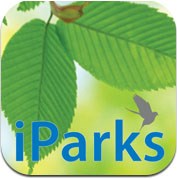
Planning a day in the park? Don't forget your smartphone
September 12, 2012 - 3:13 PM
VANCOUVER - Residents planning a day in one of the many parks throughout the Vancouver region have another item to put on their checklist along with sunscreen, blankets and picnic basket: their smartphone.
The regional district that encompasses Vancouver and surrounding communities has developed an app that details the locations of the area's regional parks, complete with information about each park and detailed, GPS-enabled maps to help parkgoers navigate trails and find picnic tables, water fountains and camping sites.
Metro Vancouver is the latest region in the country where residents can use smartphone technology to head into the great outdoors.
"We spend a fair bit of money every year printing and designing maps, and as soon as you print a map and hand it out, it's obsolete," says Stephen Suddes of Metro Vancouver, who oversaw the development of iParks Navigator, which runs on Apple's iOS system.
"We're looking at how to hand out information for our parks, and how they get that information. We do everything on our phones."
The first iteration of the app was released two years ago, limited to lists of parks and facilities, along with PDF files of park maps.
It was updated and renamed last fall with a more sophisticated interface that allowed users to see exactly where they are in a park and use their phone's GPS technology to navigate along trail maps that are updated in real-time.
The latest version off the app was released earlier this summer, adding a number of municipal parks in Richmond, south of Vancouver, along with the regional parks that were already in the system.
The hope, says Suddes, is to convince other municipalities in the region to sign on, and offer a comprehensive database of every park throughout British Columbia's Lower Mainland.
The Vancouver Parks Board has its own app that features park maps and information. It allows visitors to use their phone's GPS to find their way to the parks, but doesn't feature detailed, interactive maps of park facilities.
There are also similar apps across the country. The City of Calgary released an app called Pathways and Bikeways last year, which includes park information and maps of the city's extensive path system, though it doesn't include any GPS functions.
And there are other, unofficial apps designed by individual developers for cities in Ontario and B.C.
However, Suddes cautions the apps should be used with — not instead of — proper planning, preparation and, in backcountry parks where cellphone reception can be spotty or non-existent, a paper map or standalone GPS unit.
"We really strongly discourage people from using this kind of device (a smartphone) to navigate in the backcountry, primarily because the accuracy can depend on the wireless signal and they're not always completely accurate," he says.
Corinna Baxter, a spokeswoman for the City of Calgary's parks department, says such apps help users get information in the format they want, while potentially cutting down on the need to print large numbers of paper maps.
"We really wanted to provide Calgarians with a convenient way to access information that is important for getting around our city," says Baxter.
"But the other reason is environmental. We do publish a pathways and bikeways map that's basically a hardcopy version of the app, and what we're trying to do is encourage people to use electronic versions, whether it's on our website or through the app, so we don't need to print the paper copy."
Calgary and Vancouver appeared to be among the only municipalities in Canada that are making their own parks apps. Similar apps exist elsewhere, but typically only due to the initiative of individual developers who aren't connected to local government.
Bill Wilson, an app developer in Ottawa, created parks-themed apps for Vancouver; Ottawa; London, Ont.; and Delta, B.C. He also designed one for Portland, Ore.
Like the apps by the Vancouver Parks Board and the City of Calgary, Wilson's apps help users find information and the location of individual parks, but don't allow GPS navigation around detailed park maps.
Wilson says he's developed the park apps, as well as other programs that feature information on local recycling and traffic, using open-data initiatives that have been adopted in some cities, which focus on providing free data in easy-to-use formats. In cities that don't have such open-data programs, he uses software to "scrape" the information off municipal websites.
Wilson says more cities would have access to similar apps if they released more of their data in open, usable formats, but he doesn't have a problem leaving the job of actually designing the apps to individual programmers.
"I think it's a good idea," says Wilson.
"I think governments don't have a lot of money, and they don't have the expertise for all the different platforms, for android and iPhone and web, so releasing data is a good thing. It allows experts or people interested to go make the applications on their own, and they're getting free work."
News from © The Canadian Press, 2012